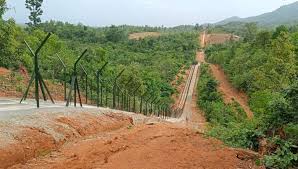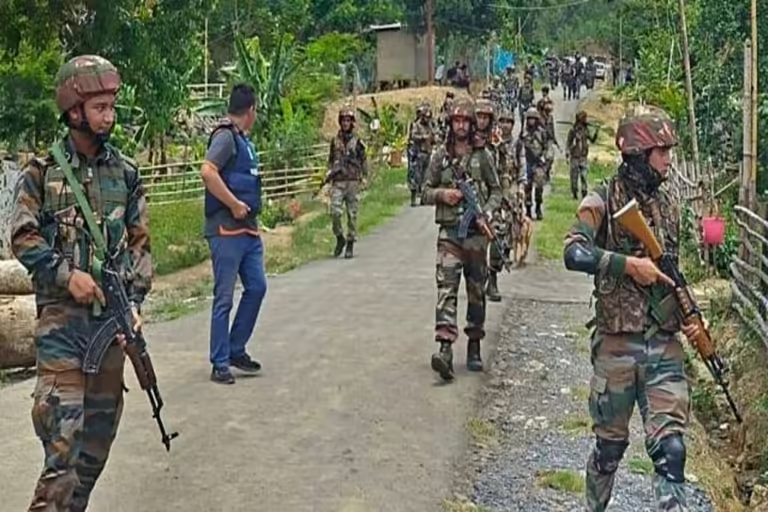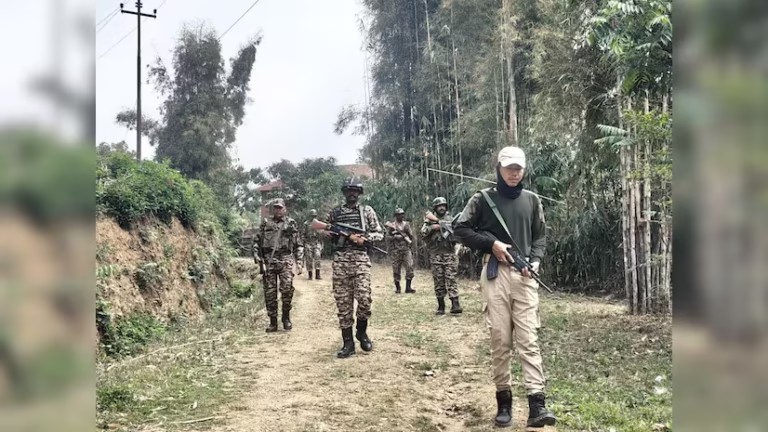Manipur Border Fencing: COCOMI’s Stance and Growing Concerns
The Coordinating Committee on Manipur Integrity (COCOMI) has expressed strong condemnation over the sudden halt of the border fencing project along Manipur’s border with Myanmar. COCOMI emphasizes that this delay poses a severe threat to the region’s security, particularly in safeguarding the territorial integrity of Manipur. The organization is demanding that the fencing work be resumed immediately to ensure protection against cross-border infiltrations and maintain law and order. The abrupt stoppage has raised significant concerns about the state’s vulnerability.
Introduction: Manipur’s Border Fencing Controversy
Border security has always been a top priority for countries sharing boundaries with neighboring nations. In India’s northeastern region, the state of Manipur shares a sensitive international boundary with Myanmar, spanning approximately 398 kilometers. Given its strategic location, Manipur has faced issues related to illegal immigration, cross-border infiltration, smuggling, and other forms of criminal activities. To address these concerns, the Indian government initiated a border fencing project along the India-Myanmar border, aiming to create a robust defense mechanism.
However, the sudden halt of this project has sparked a fierce debate, particularly led by local organizations such as the Coordinating Committee on Manipur Integrity (COCOMI). In recent developments, COCOMI has condemned the halt, citing potential threats to the state’s territorial integrity and overall security.
This article will delve into the intricacies of the border fencing controversy, the potential consequences of delaying the project, and the local sentiment regarding the need for enhanced border security in Manipur.
Halt of the Border Fencing Project: Why Is It a Concern?
The suspension of the border fencing project has raised alarms not only within government circles but also among local organizations. COCOMI has taken a firm stand against this abrupt halt, pointing out that Manipur’s border with Myanmar is extremely porous. Over the years, this has led to numerous issues, including:
- Cross-Border Infiltration: The porous border has allowed insurgents and other illegal entities to move between India and Myanmar freely. This has resulted in security concerns for both the local population and law enforcement agencies.
- Smuggling Activities: Manipur’s border with Myanmar has been a hotspot for illegal smuggling, particularly involving drugs, arms, and wildlife. The lack of proper fencing exacerbates these issues, making it difficult for border security forces to effectively monitor and curb these activities.
- Illegal Immigration: A porous border makes it easier for individuals from Myanmar to cross into Indian territory without proper documentation. Over time, this could lead to demographic changes and tensions within local communities.
Given these concerns, COCOMI has emphasized the need for immediate resumption of the fencing project. They argue that delaying the project not only weakens border security but also endangers the lives and livelihoods of local residents who reside in the border areas.
The Strategic Importance of Manipur’s Border with Myanmar
Manipur’s location makes it a vital region for India’s security strategy in the northeastern frontier. The state’s proximity to Myanmar, a country that shares its own challenges with insurgency, makes the border region particularly sensitive.
- Geopolitical Concerns: Myanmar’s instability, particularly in regions near Manipur, has had a spillover effect on India. Militant groups operating in these areas often use the Myanmar-Manipur border as a safe passage, making the fencing project crucial in countering such activities.
- Trade and Connectivity: The India-Myanmar border is also a critical link for India’s Act East policy, which aims to improve trade and connectivity with Southeast Asia. Securing this border ensures smoother trade routes and prevents disruptions caused by illegal activities.
- Cultural Ties: The border region is home to communities that share strong cultural and ethnic ties across both sides of the boundary. While these ties are essential for fostering relations, the lack of border security can sometimes lead to tensions and misunderstandings, making it imperative to regulate movement through a proper fencing system.
COCOMI’s Stand: A Call for Immediate Action
COCOMI, an influential local body in Manipur, has been at the forefront of advocating for the state’s integrity and security. Their recent statement regarding the halt of the border fencing project has resonated with many residents who live in the border regions. COCOMI’s primary concerns include:
- Threat to Territorial Integrity: Manipur has a history of insurgency and ethnic conflicts. The absence of a secure border can exacerbate these issues, as militants and illegal migrants can easily cross over into Indian territory, destabilizing the region further.
- Delay in Project Completion: COCOMI has criticized the delay in the fencing project, which they argue is long overdue. They claim that further postponements only weaken the region’s security framework and embolden criminal activities along the border.
- Safety of Border Communities: The local population residing near the border is often the first to feel the effects of a porous boundary. COCOMI has raised concerns over their safety, urging the government to prioritize the completion of the fencing to provide these communities with a sense of security.
- National Security: COCOMI’s stance is not just about protecting Manipur’s borders but also about safeguarding India’s national security. They argue that the border fencing is critical in preventing the infiltration of militants and other criminal elements into the country.
Government’s Response: What’s Next?
While COCOMI has voiced strong opposition to the halt of the border fencing project, the central government has yet to provide a detailed response. However, it is likely that the matter will be taken up at higher levels of governance, given the strategic importance of the India-Myanmar border.
The government must address the following concerns:
- Security Measures: In the absence of fencing, the government should ensure that other security measures, such as increased patrolling and surveillance, are in place to prevent illegal activities along the border.
- Dialogue with Local Communities: The government should engage with local communities and organizations like COCOMI to better understand their concerns and work together towards a solution that prioritizes both security and community well-being.
- Timely Completion of the Project: If the project is to resume, it must be completed in a timely manner to avoid further delays and security risks.
Conclusion: The Way Forward for Border Security in Manipur
The halt of the border fencing project along the Manipur-Myanmar border is a critical issue that demands immediate attention. Organizations like COCOMI have highlighted the potential risks of delaying this project, emphasizing the need for a secure boundary to protect both local communities and the nation’s security.
As the government reviews its strategy, it must prioritize the safety and well-being of the people living in the border regions while ensuring that national security is not compromised. The resumption and timely completion of the border fencing project will not only safeguard the region from illegal activities but also contribute to the stability and prosperity of Manipur.
FAQs
- Why is the Manipur-Myanmar border fencing project important?
- The project is vital to curb cross-border infiltration, smuggling, and illegal immigration, ensuring national security.
- What are COCOMI’s concerns regarding the halt of the project?
- COCOMI is concerned about the potential threats to territorial integrity and national security due to the porous border.
- How does the porous border affect local communities?
- Border communities are vulnerable to cross-border criminal activities, putting their safety and livelihoods at risk.
- What is the government’s response to the halt in the fencing project?
- The government has yet to provide a detailed response, but it is likely that security measures will be reviewed.
- What is the next step in ensuring Manipur’s border security?
- The government must prioritize the resumption of the fencing project while ensuring adequate interim security measures.





